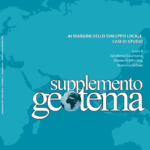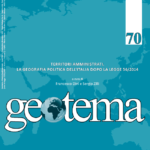Antonietta Ivona
Land grabbing, infrastrutture e interessi cinesi
La crescente tendenza verso acquisizioni di terra arabile nei Paesi in via di sviluppo da parte di compagnie private e governi di Paesi sviluppati ed emergenti, al fine di assicurare il soddisfacimento dei propri interessi economici, ha delineato il fenomeno del land grabbing. L’accaparramento sta riguardando la contrattazione di grandissime estensioni di suoli coltivati e coltivabili, per l’acquisizione diretta oppure mediante l’affitto per lunghissimi periodi. Il quadro normativo poco chiaro nella maggior parte dei Paesi a basso indice di reddito (un tempo definiti Paesi in via di sviluppo), ha favorito il diffondersi di questo fenomeno; a ciò bisogna aggiungere i forti interessi, non solo di chi acquista ma anche dei governi locali, a sostenere questi accordi in previsione delle potenziali ricadute infrastrutturali che spesso sono al centro delle contrattazioni. In linea generale, l’incremento su larga scala degli accordi in questione sembra favorito dalla necessità di stabilizzare le economie interne dei Paesi venditori e, conseguentemente, favorire la stabilità politica. Questa situazione molto spesso si configura come una vera e propria scelta strategica verso cui indirizzare gli investimenti diretti esteri, come ad esempio nel caso della Cina, che attraverso il mega progetto infrastrutturale della Via della Seta è riuscita ad incrementare le relazioni geopolitiche con i governi africani. Attraverso alcuni esempi, si illustreranno le implicazioni tra il land grabbing e la Nuova Via della Seta.
Abstract: Land grabbing, Infrastructure and Chinese Interests
The growing trend towards the acquisition of arable land in developing countries by private companies and governments of developed and emerging countries, in order to ensure the satisfaction of their economic interests, has outlined the phenomenon of land grabbing. The land grabbing is taking place through the bargaining of very large areas of cultivated and cultivable land, for the direct acquisition or through the rent for very long periods. The unclear regulatory framework in most low-income countries (formerly defined as developing countries) has favoured the spread of this phenomenon; to this must be added the strong interests, not only of those who buy but also of local governments, to support these agreements in anticipation of the potential infrastructure effects that are often at the heart of negotiations. In general, the large-scale increase in the agreements in question seems to be favoured by the need to stabilise the internal economies of the selling countries and, consequently, political stability. This situation very often takes the form of a real strategic choice towards which to direct foreign direct investment, as, for example, in the case of China, which, through the mega infrastructure project of the Silk Road, has succeeded in increasing geopolitical relations with African governments. Through some examples, the implications between land grabbing and the New Silk Road will be illustrated.
Résumé: L’accaparement des terres, l’infrastructure et les intérêts chinois
La tendance croissante à l’acquisition de terres arables dans les Pays en développement par les entreprises privées et les gouvernements des Pays développés et émergents, afin d’assurer la satisfaction de leurs intérêts économiques, a mis en évidence le phénomène de l’accaparement des terres. La thésaurisation se fait par la négociation de très grandes superficies de terres cultivées et cultivables, pour l’acquisition directe ou par la location pour de très longues périodes. Le manque de clarté du cadre réglementaire dans la plupart des pays à faible revenu (anciennement définis comme pays en développement) a favorisé la propagation de ce phénomène, auquel il faut ajouter les forts intérêts, non seulement de ceux qui achètent mais aussi des collectivités locales, à soutenir ces accords en prévision des effets potentiels des infrastructures qui sont souvent au coeur des négociations. D’une manière générale, l’augmentation à grande échelle des accords en question semble être favorisée par la nécessité de stabiliser les économies internes des pays vendeurs et, par conséquent, la stabilité politique. Cette situation se traduit très souvent par un véritable choix stratégique pour orienter les investissements directs étrangers, comme c’est le cas, par exemple, de la Chine qui, à travers le mégaprojet d’infrastructure de la Route de la Soie, a réussi à renforcer ses relations géopolitiques avec les gouvernements africains. A travers quelques exemples, les implications entre l’accaparement des terres et la Nouvelle Route de la Soie seront illustrées.
Parole chiave: accaparramento, interessi, infrastrutture, sviluppo
Keywords: grabbing, interests, infrastructure, development
Mots-clés : accaparement, intérêts, infrastructure, développement









